Brazil
Rise in sex parties in Brazil upends country’s gay nightlife
Some fear phenomenon will mark industry’s demise
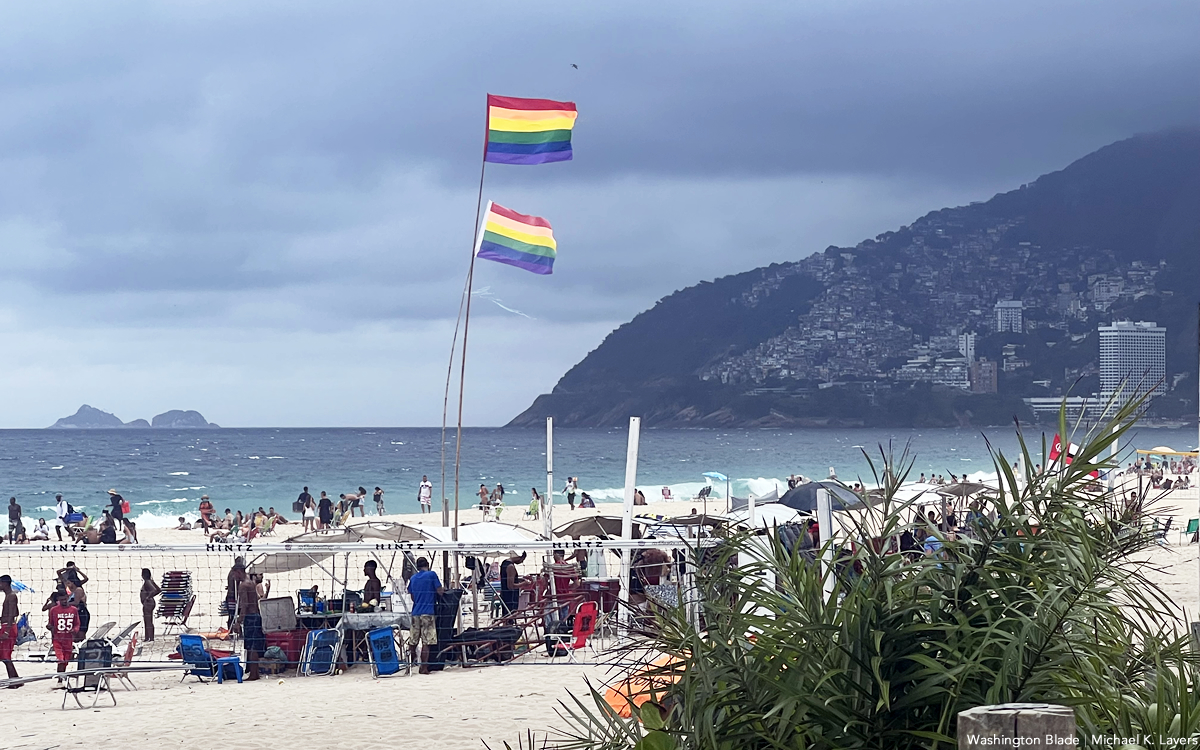
Gay nightlife in Brazil, especially in Rio de Janeiro and other cities with great tourist, is going through a difficult time. If in the past there were countless LGBTQ nightclubs scattered around the city, with the vast majority of them in Copacabana, today there are no more than six in the area.
The emergence of the internet and later dating apps made it possible to meet someone through a small screen without having to go to a nightclub. But it wasn’t just the digital world that had an influence on this; several other issues also contributed to the decline of Brazilian gay nightlife. To better understand this new scenario, the Washington Blade spoke to veteran artists from Brazil’s LGBTQ scene to understand the roots of this complex enigma.
The cost of maintaining a nightclub involves high and fixed expenses, such as rent, staff for various functions, attractions, and other bills, when financial return was guaranteed in the past, but not today. Brazil’s gay nightlife, especially in Rio, hasn’t gone extinct, it’s still resisting, but competing with new trends: sex parties. In recent years, they have become more and more frequent in the “Cidade Maravilhosa” or the “Marvelous City” as Rio is known and their main focus is group sex.
Spread between the city’s South and Central Zones, they take place on regular dates, in fixed or itinerant locations, such as saunas and old mansions. They are always on a differentiated schedule that can involve go-go boys, open bars, and other attractions.
It’s impossible to talk about the success of these spicy parties without having a look at gay nightlife in the past; and the changes that took place during the 1990s and 2000s, when the internet was just becoming popular and a new generation was being born. If in the past, gay nightclubs were a place to dance, drink, flirt, and maybe end the night with someone, these stages have been skipped for something much more immediate.
MachoMan, one of Rio’s most famous sex parties, brings together a male audience of around 130 participants at each edition. The event has grown and is currently held in three different places: a mansion, a sauna, and a bar. Over the seven years of its existence, the party’s creator, Maurício Code, estimates that 25,000 men have been there. Asked about the popularity of adult parties in parallel with the decline of nightclubs, he replied: “In times of immediacy when it comes to libido, many people want to skip the flirting phase and get straight to the point. Less talk and more action is the premise of the new times.”
For the organizer, there are guarantees at a carnal party, which can be uncertain at a nightclub.
“At sex parties, the guarantee of some sexual interaction is a certainty,” he says.
MachoMan has had upwards of 220 parties. Some of them offer an open bar, changing rooms, showers, a steam room, and even places for BDSM and other fetishes. Unlike the nightclubs that had darkrooms for anonymous pleasure in the dark, the pleasure at these parties is collective and in front of everyone.

Another issue to be considered is that the cost of these sex parties is lower than that of nightclubs; since the events take place on specific dates, the professionals involved (bartenders, DJs, cleaners, go-go boys, bodyguards, etc.) are hired just for that occasion. The rented space can host other events — straight or gay — on other dates — with our without erotic appeal. Because they don’t take place on specific days, this also creates an expectation among the audience for the next party..
In fact, the only obstacle to these libidinous parties is competition.
There are currently dozens taking place almost simultaneously in Rio and other cities. The schedule varies little, but they always have beautiful naked men with bodies sculpted in the gym entering a male audience eager for pleasure. Raphael Habbib is one of them.
Although he is Brazilian, he has Arab features and is one of the most sought-after go-go boys, appearing at many libertine parties with his sensual performances. For him, the phenomenon of erotic parties is associated with a change in behavior.
“The gay audience has changed, we are now more willing to experience sexuality in a more genuine way, exploring all forms of enjoyment,” said Habbib.
Regarding the collapse of nightclubs, he reflects: “Sex parties have a nightclub atmosphere, music, booze, and lots of sex with no compromise, in other words, they have everything that nightclubs used to have and more.”
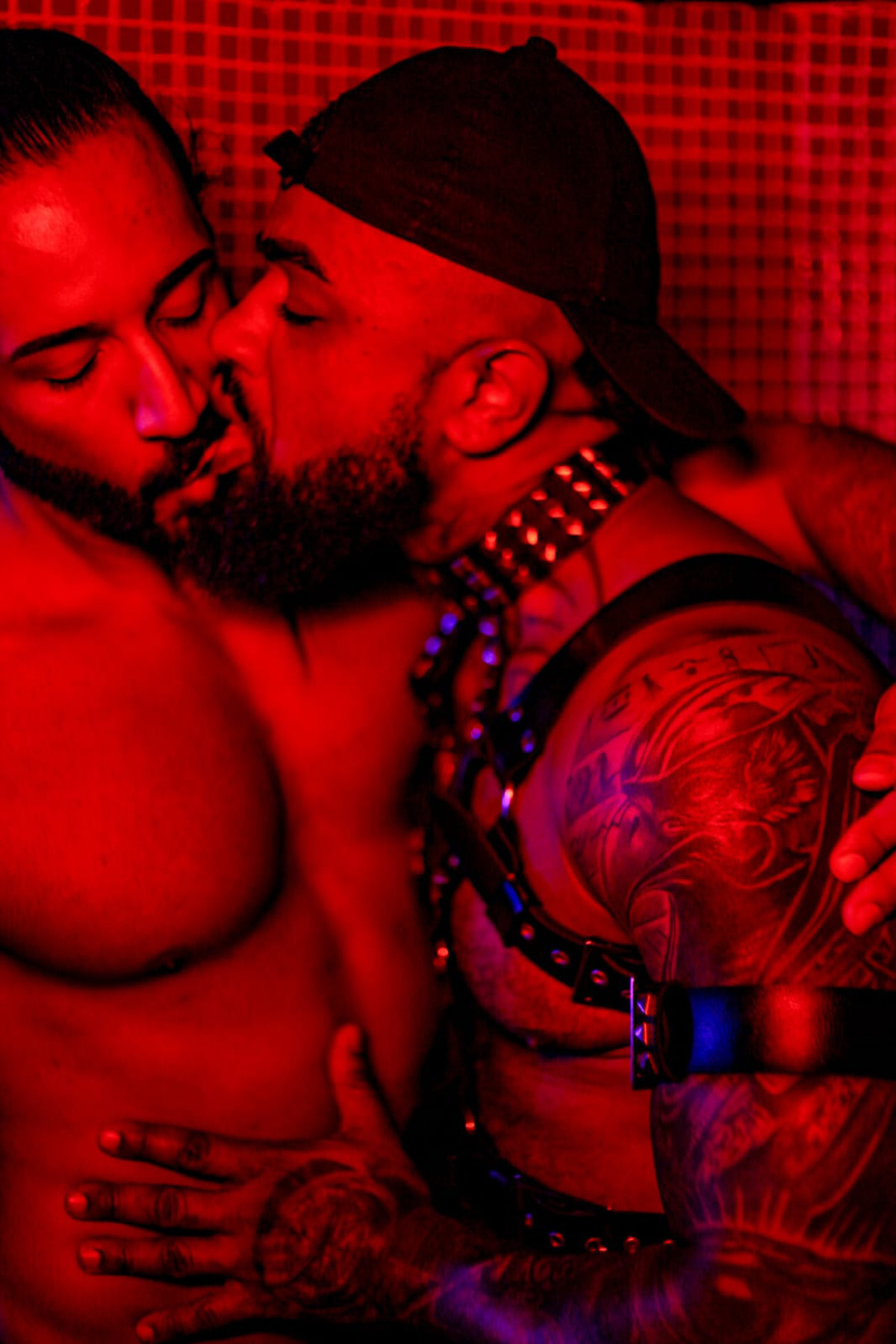
A portrait of the past gay scene
In the 1980s and 1990s in Brazil; nightlife was a meeting of tribes, of subcultures, each occupying their own space and, above all, expressing their sexuality after a full day of repression at work. In this sense, nightlife was a place to let loose, enjoy, drink, and interact, even if the hangover came the next day. The big urban centers had endless nights, streets full until dawn, and pleasant encounters came about by chance. There has been a transformation that not only involves the rise of the internet, but also economic crisis and violence. Nightlife is quieter, and there is no single culprit.
However, since the 2000s, the LGBTQ nightlife scene has been changing by leaps and bounds. Nightlife entrepreneurs have had to reinvent themselves as their audiences have migrated elsewhere; and some, even though they were looking for innovation, ended up closing their doors a few years later.
Veteran drag queen Eula Rochard has been on stage since 1984 and has followed all these changes closely. For her, the advance of LGBTQ policies in Brazil since the late 1990s has caused the gay community to spread to other places where they were not welcome before.
While in terms of rights it was progress, on the other hand, there was a move away from gay “ghettos.”
“People who used to hide from home to go to nightclubs no longer hide,” said Rochard. “In the 1980s, everything was hidden, the nightclubs were ghettos, there were several at the time, the fees were bad, but there was a lot of work. I traveled the country.”
Rochard, however, recognizes the importance of these policies.
“That was great, because in my time people were killed and nothing happened (impunity), but businessmen no longer wanted to invest in nightclubs, if a gay person could go or kiss anywhere, so the nightlife for us gays has weakened a lot, it’s almost non-existent,” she said.
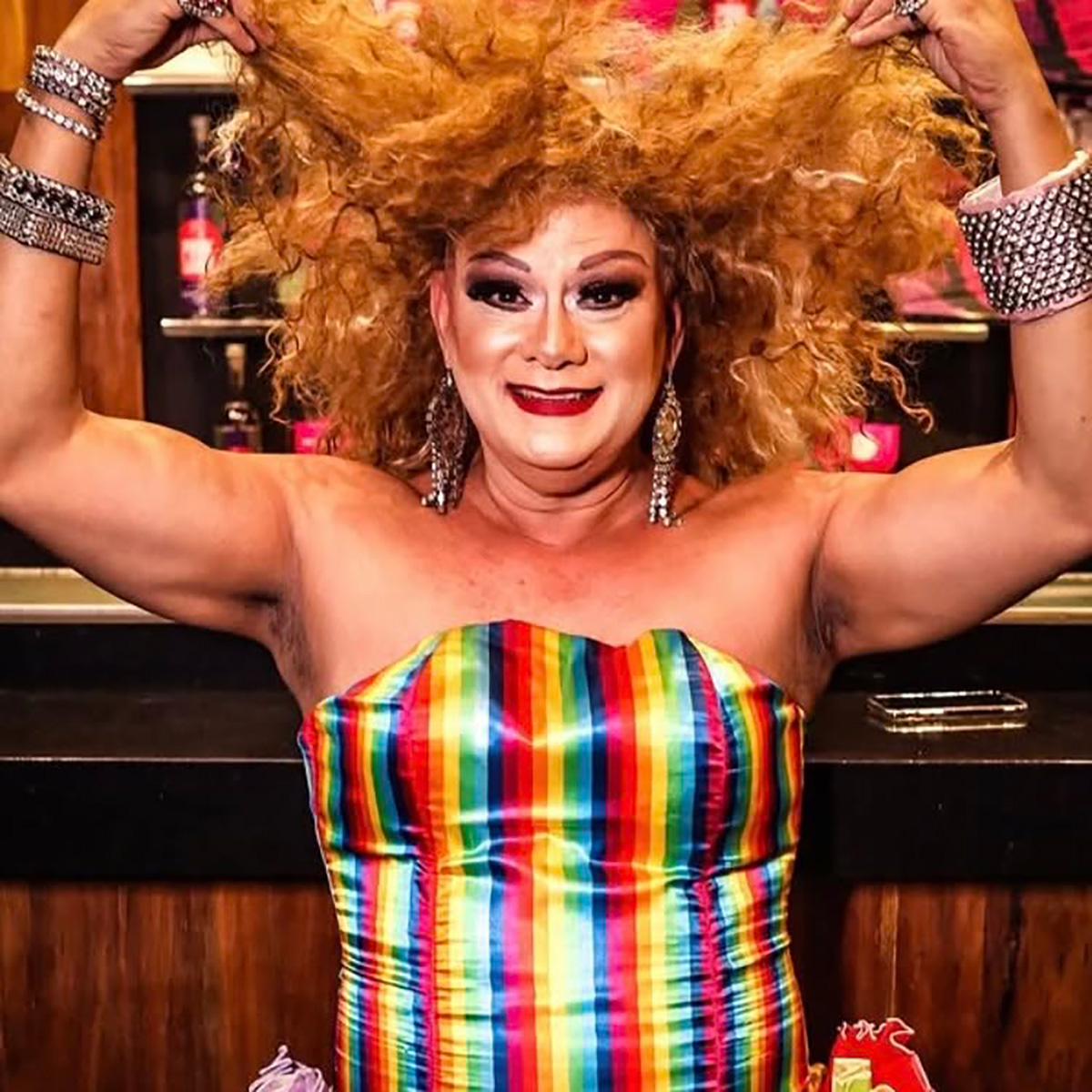
Rochard in 2023 made international headlines when she revealed that former U.S. Rep. George Santos (R-N.Y.) was once a drag queen known as Kitara Ravache who performed in Rio and in the nearby city of Niterói,
Trans artist Angelika Rawaxi shares the same opinion.
“Nowadays we have the chance to go to other places, we have laws in our favor, and we don’t have to be in ghettos anymore,” said Rawaxi. “What has contributed is the freedom we’ve been given to go to other places and expand our work.”
Both don’t believe that the internet has harmed gay nightlife, on the contrary. In terms of relationships, however, the online world has presented a problem.
“People used to go to gay clubs to kiss, to find a boyfriend, and that’s over,” lamented Rawaxi. “Today gay people go to dating apps, no one meets by looking, by touching, by dancing to a song like they used to.”

The now-closed Le Boy was Rio’s most popular gay nightclub.
The 1970s inspired its decor, with mirrored globes, sofas, and a Studio 54 vibe. Calvin Klein, Jean-Paul Gaultier, Rupert Everett, Rihanna, and Katy Perry are among the celebrities who were seen at Le Boy. It remained open from 1992-2016, but succumbed to the economic crisis and its French owner put the property up for sale after 24 years. Another gay nightclub opened in the same place in 2024, and it is one of the few remaining in Copacabana.
As the LGBTQ establishments closed their doors, the drag queens and crossdressers who used to perform on stage had to look for other ways.
Businessman Júnior Barbosa, owner of Rio’s most notorious gay sauna, was a pioneer when he hired these artists to perform at his establishment in Copacabana. The initiative represented a new field of work for those who depended on LGBTQ nightclubs. Others, like drag queen Gabrielly Rodin, were able to reinvent themselves and migrated to straight parties and other events.
“I went to other venues, and I always had acceptance and financial return,” Rodin told the Blade.
Rodin attributes the decline of LGBTQ nightlife to the replacement of drag queens by DJs, and to the open bar that devalued the artists, as if the crowd were more interested in drinking than enjoying a performance.
LGBTQ nightlife decline is not unique to Brazil
Germany since the 1990s has seen the same transition as Brazil.
“Clubsterben” is a German expression that means “death of nightclub culture,” especially in Berlin, a previous oasis of the techno scene.
The Wilde Renate, a nightclub in a poorly maintained building, will close at the end of the year, while the Watergate closed its doors at the end of 2024 after 22 years. A report carried out in November by an organization representing Berlin’s clubs revealed that half of the 250 or so nightclubs in the German capital are at risk of closing their doors this year. Berlin’s nightlife is not at its best, and the rest of the world in general.
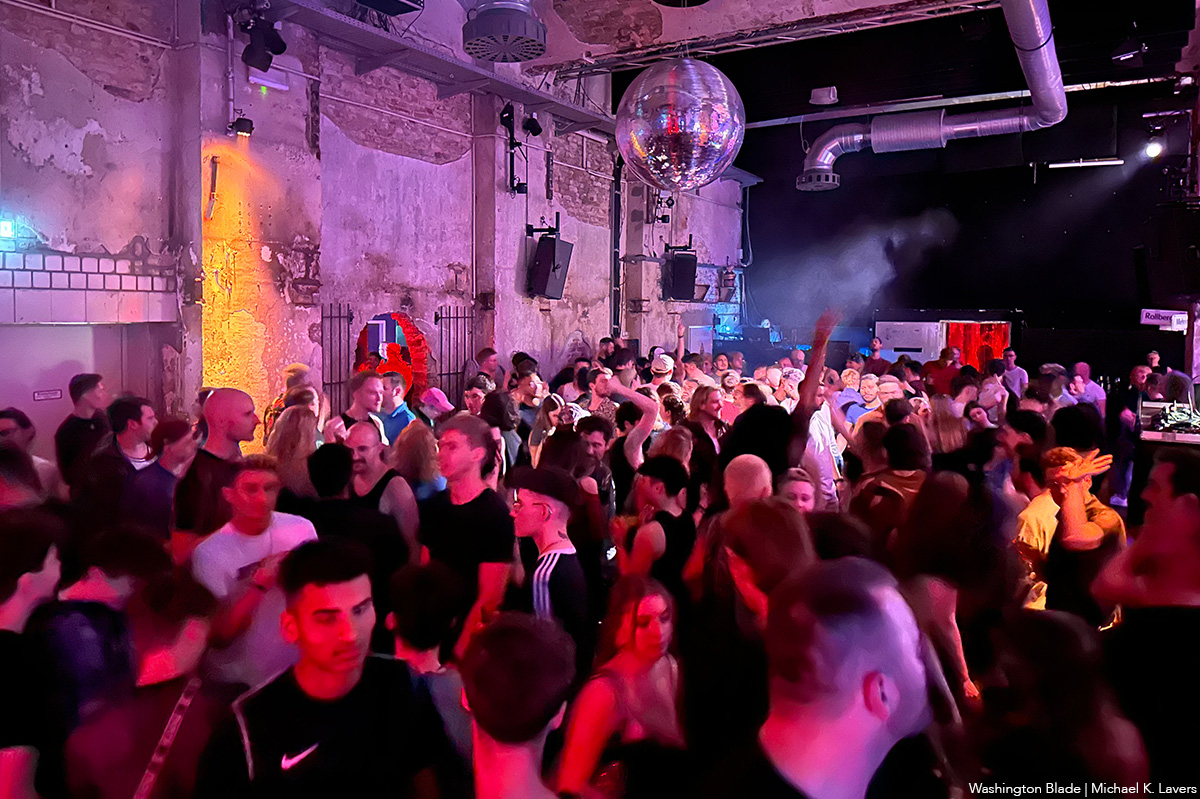
The Guardian reported there were 1,700 nightclubs in the U.K. in 2013; 11 years later there were only 787 left.
Another noticeable change in Brazil has been the open bar, which has increased the cost of entry, coupled with the country’s economic instability. Therefore, the death of the Berlin or Rio nightclubs is not an isolated situation, but a reality in the ever-changing world, as well as a generational change.
Against the backdrop of the Brazilian crisis, La Cueva nightclub is an exception.
It has been in business since 1964 and is Latin America’s oldest gay club. The underground nightclub in Copacabana has withstood the dictatorship of the 1960s and 1970s, the AIDS epidemic of the 1980s, the economic crises of the 1990s. Its longevity may be associated with its strictly mature audience (on average over 55) who still prefer eye-to-eye contact and dancing to flashbacks, and are probably not so adept at virtual media.

What is the gay scene’s future?
For many, the night has lost its shine, it has become empty. Interaction between people seems to have lost a bit of its meaning. They’re not disconnected from the virtual world, even when they are with friends in bars. They’re always with their eyes fixed on their cell phone, sometimes forgetting about the real world. Going to a club in the hope of not only dancing, but also meeting someone interesting, having a relationship, and perhaps a night of sex, has become too slow-paced.
“What is the future of the gay nightlife scene for drag queens and trans women, who in the past performed several times a night in nightclubs? Opinions differ.
“The future of LGBTQ+ artists in Rio is tragic, nowadays, we’re working for very low fees, because many are doing shows for free,” complains Rawaxi.
Rodin is more confident.
“Today we can occupy all spaces and not just the ‘ghettos,’ we are renewing ourselves, being seen by everyone, we can’t just accept the bubble that society forces us to live in,” they said.
Rochard doesn’t have the same optimism.
“I don’t see a future in Brazil as far as nightlife is concerned, the clubs need to reinvent themselves, they won’t cease to exist; but they won’t be the same as in the past, but our drag queen culture will never end,” she said.
Brazil
Black transgender singer from Brazil wins three Latin Grammy Awards
Liniker performed at Las Vegas ceremony
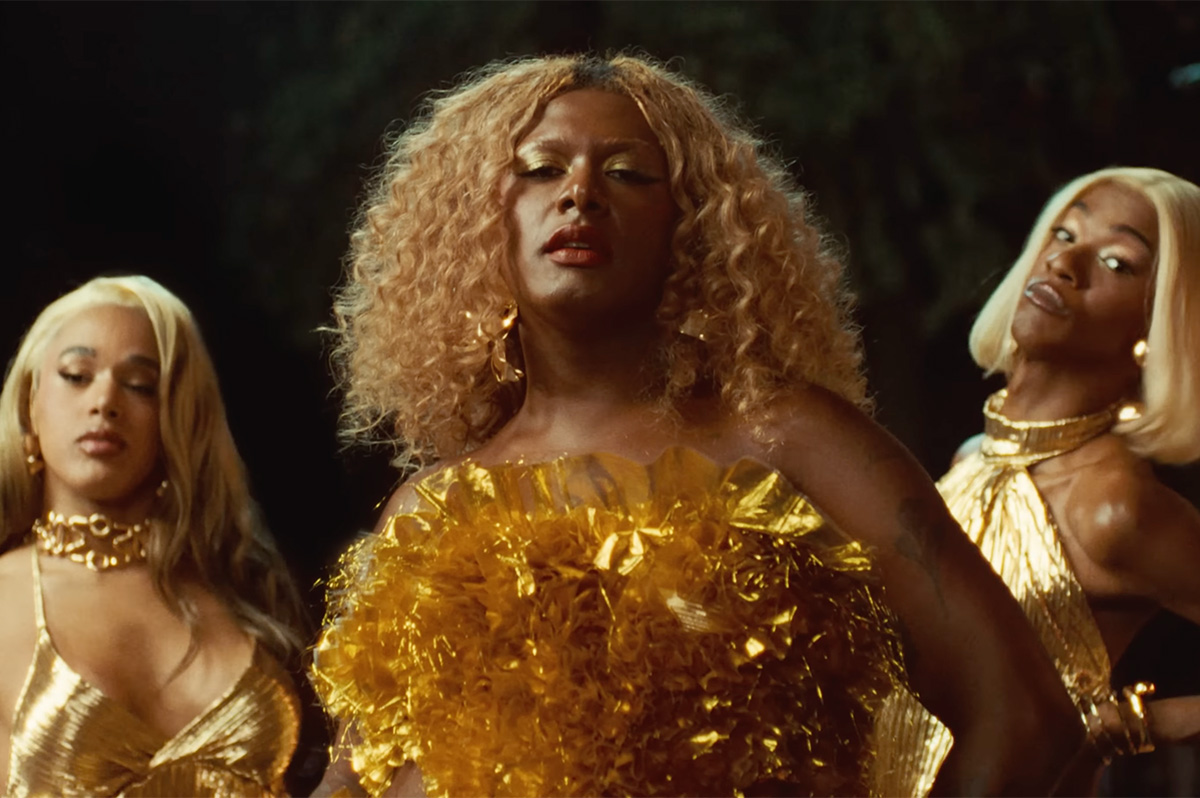
A Black transgender singer and songwriter from Brazil on Nov. 13 won three Latin Grammy Awards.
Liniker, who is from Araraquara, a city in São Paulo State, won for Best Portuguese Language Song for her song “Veludo Marrom,” Best Portuguese-Language Urban Performance for her song “Caju” from her sophomore album of the same title, and Best Portuguese Language Contemporary Pop Album for “Caju.”
She accepted the awards during the Latin Grammy Awards ceremony that took place in Las Vegas. Liniker also performed.
“I’ve been writing since I was 16. And writing, and poetry, have been my greatest form of existence. It’s where I find myself; where I celebrate so many things I experience,” said Liniker as she accepted her first Latin Grammy on Nov. 13. “And being a composer … Being a trans composer in Brazil — a country that kills us — is extremely difficult.”
Liniker in 2022 became the first openly trans woman to win a Latin Grammy.
Brazil
Former Brazilian President Jair Bolsonaro convicted of attempted coup
Supporters stormed Congress, Supreme Court, presidential palace in 2023

The Brazilian Supreme Court on Thursday convicted former President Jair Bolsonaro on charges that he tried to overturn the results of the country’s 2022 election.
The New York Times notes four of the five justices who heard the case voted to convict Bolsonaro and seven others implicated in the plot. The Supreme Court sentenced Bolsonaro to 27 years in prison.
Bolsonaro, a right-wing former Brazilian Army captain who represented Rio de Janeiro in Congress for nearly three decades, became the country’s president in 2018. Bolsonaro, among other things, faced sharp criticism over his rhetoric against LGBTQ Brazilians, women, and other groups.
Luiz Inácio Lula da Silva, a member of the leftist Worker’s Party who was Brazil’s president from 2003-2010, in 2022 defeated Bolsonaro in the presidential election’s second round.


Da Silva took office on Jan. 1, 2023. Bolsonaro did not attend the inauguration.
Thousands of Bolsonaro supporters a week later stormed Congress, the presidential palace, and the Supreme Court. LGBTQ activists are among those who condemned what they described as an attempted coup.
Brazil’s Superior Electoral Court in June 2023 banned Bolsonaro from running for president until 2030.
“Papuda is waiting for you, Bolsonaro,” said transgender Congresswoman Erika Hilton on X, referring to the Papuda Penitentiary Center in the Federal District in which Brasília, the country’s capital, is located.
🚨 BOLSONARO, A PAPUDA TE ESPERA!
A Primeira Turma do Supremo Tribunal Federal acaba de definir a pena total de 27 anos e 3 meses de reclusão em regime FECHADO ao condenado Jair Bolsonaro.
Bolsonaro e seus aliados foram condenados pelos crimes de tentativa de golpe de Estado,… pic.twitter.com/5yzin5kzRb
— ERIKA HILTON (@ErikakHilton) September 11, 2025
The Trump-Vance administration last month imposed tariffs against Brazil in response to the Bolsonaro trial. The White House also sanctioned Supreme Court Justice Alexandre de Moraes, who oversaw the proceedings.
Secretary of State Marco Rubio on Thursday said on X the U.S. “will respond accordingly to this witch hunt.”
“The political persecutions by sanctioned human rights abuser Alexandre de Moraes continue, as he and others on Brazil’s supreme court have unjustly ruled to imprison former President Jair Bolsonaro,” said Rubio.
Brazil
DHS plans to deport transgender Brazilian woman arrested in Md.
ICE agents removed Alice Correia Barbosa from her car on Aug. 23

The Department of Homeland Security on Wednesday said it plans to deport a transgender Brazilian woman who U.S. Immigration and Customs Enforcement agents arrested in Silver Spring.
A video posted to Instagram shows three plain-clothed ICE agents removing Alice Correia Barbosa from her car on Aug. 23. One agent misgendered Correia before he and the two other agents placed her into an unmarked SUV.
A senior DHS official in response to the Washington Blade’s request for comment about Correia’s arrest referred to her by her birth name and described her as an “illegal alien from Brazil” who “overstayed his visa by almost six years.” The official also used male pronouns to describe Correia.
“He remained in the U.S. after his B-2 tourist visa that allowed him to remain in the U.S. for six months. Nearly six years later, he is still illegally in our country,” the official told the Blade. “Barbosa’s criminal history includes arrests possession of a controlled substance and marijuana possession. U.S. Border Patrol arrested Barbosa on Aug. 23, 2025, and he will remain in ICE custody pending removal proceedings. President Trump and Secretary Noem are committed to restoring integrity to the visa program and ensuring it is not abused to allow aliens a permanent one-way ticket to remain in the U.S.”
The Blade asked the official why they used Correia’s birth name to identify her and male pronouns to describe her.
“Because he is a man,” said the official.
Erika Hilton, a Brazilian congresswoman who is a Black travesti, on Aug. 24 said she asked the country’s Foreign Ministry to “intercede to guarantee the rights and physical integrity of Alice Correia Barbosa, a Brazilian trans woman who was arbitrarily, suspiciously, and violently arrested in the U.S.”
Hilton in her X post said Correia’s arrest is unconstitutional. Hilton further criticized the Trump-Vance administration’s overall immigration policy.
“Obviously, I don’t believe it’s fruitful to explain to the U.S. the illegalities committed by a Dorito-colored dictator’s little project,” said Hilton.
Acabo de acionar o Itamaraty pedindo que intercedam pela garantia dos direitos e integridade física de Alice Correia Barbosa, uma brasileira trans que foi presa de forma arbitrária, suspeita e violenta nos EUA.
Tudo, em desrespeito à Declaração Universal dos Direitos Humanos,…
— ERIKA HILTON (@ErikakHilton) August 24, 2025
The Brazilian Foreign Affairs on Wednesday told the Blade the country’s Consulate General in D.C. “is monitoring the case, in contact with local authorities, and providing consular assistance to the Brazilian national.” Them reported Correia is in ICE custody at the Caroline Detention Facility in Virginia.
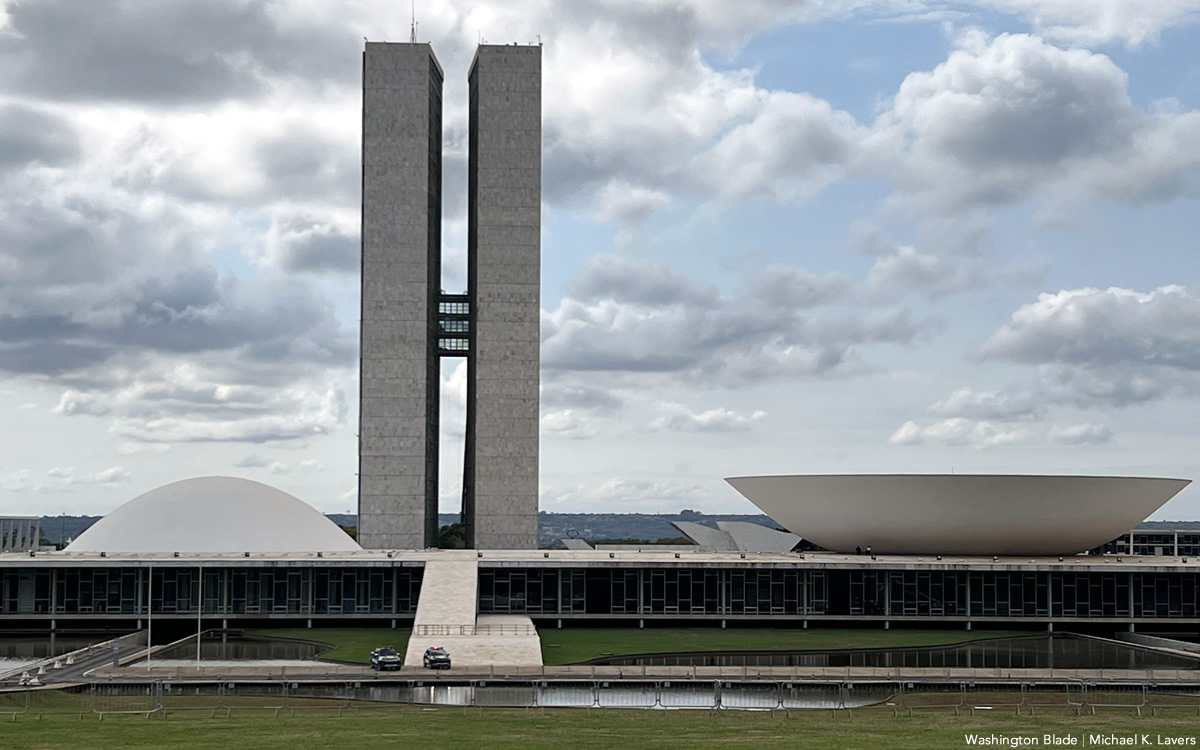
Brazil has the highest number of reported murders of trans people in the world. The State Department’s 2024 human rights report that “erased” LGBTQ people does not mention this fact.
President Donald Trump in his inaugural speech announced the federal government’s “official policy” is “there are only two genders, male and female.” Hilton and Duda Salabert, another Brazilian congresswoman who is also trans, earlier this year said the U.S. listed their gender on their American visas as “male.”


















